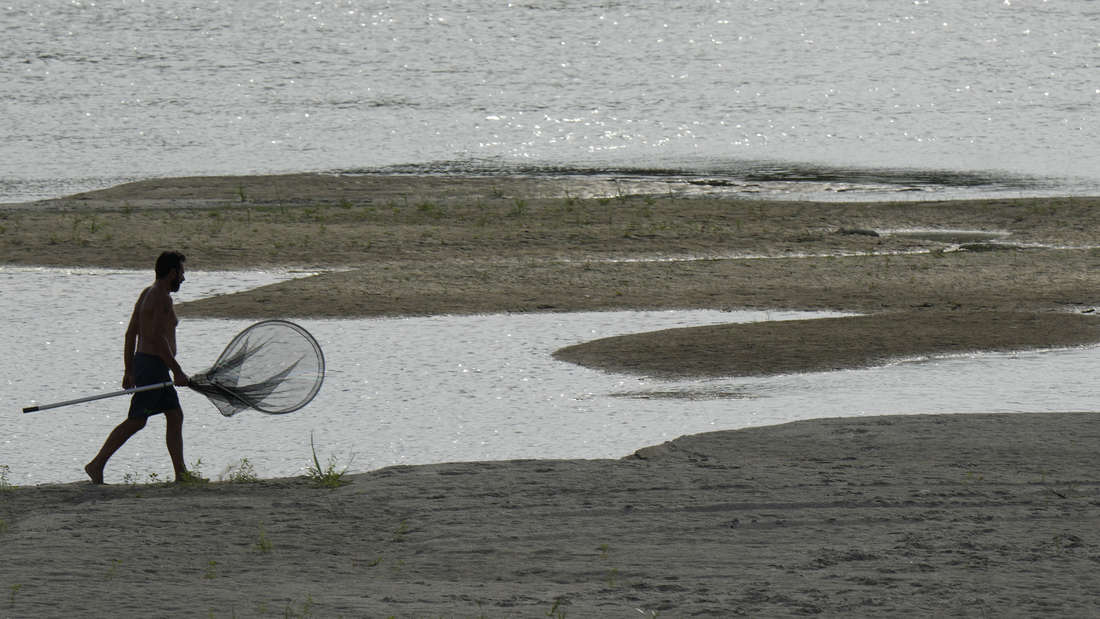
The Italian river Po carries less water than usual due to the drought. In the shallow part of the river, fishermen therefore discovered an aerial bomb.
Mantua – Not only in Germany, rivers and lakes carry little water due to the persistent heat, but also in Italy. The Po in northern Italy also has a low water level. This reveals some things that have remained undiscovered so far. According to media reports, a bomb weighing around 450 kilograms was found in an otherwise flooded part of the river bed. This is said to have been found by fishermen in July near the city of Mantua, according to Spiegel.de .
Heat in Italy: bomb discovered in river bed
The bomb was initially defused on Sunday (7 August). As reported by the BBC , around 3,000 residents in the vicinity were evacuated. The area’s airspace was also briefly closed, as was river traffic on the waterway itself.
The bomb squad then transported the bomb to the Ca Fattori quarry in the municipality of Medole, where it was detonated in a controlled manner. This is reported, among other things, by the Italian newspaper Prima Mantova.
Air bombs in Italy: Army defuses bomb in Bolzano
Just a few weeks earlier, in mid-July, an air bomb had to be defused in Bolzano. This was found on July 1st at a construction site in the city center. For safety, 4,400 citizens had to leave their homes, according to the Italian army.
Aerial bombs in Germany: Thousands of tons of unexploded bombs
In Germany, too, bombs have to be defused regularly. According to Spektrum.de , two million tons of bombs rained down on Germany during the Second World War. Thousands of them are still stuck in the ground as duds. Accordingly, there are still around 100,000 tons of unexploded bombs in the German underground.
In 2019 alone, 2,160 bombs were rendered harmless in North Rhine-Westphalia, according to the science magazine. Just last week, two aircraft bombs found in Geretsried in Upper Bavaria were successfully defused. The first dud was found on Tuesday (2 August) during construction work. Bomb number two followed just two days later on the same construction site. (jsch)




